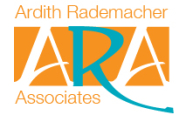Misclassifying employees as independent contractors is something that happens in virtually every industry – and the construction industry is no exception. In fact, some studies estimate that up to 3.4 million workers across the country are incorrectly labeled as contractors every year – including 300,000 individuals working in the construction industry. This could include up to 30% of all companies.
Why Would Companies Misclassify Workers?
Employees are entitled certain benefits that independent contracts are not. For example, companies are required to pay payroll taxes, which goes toward things like health insurance, unemployment, and social security. If companies hire workers that do not have “employee status,” then they may avoid paying these taxes.
There are certainly employers who deliberately misclassify employees as independent contractors in order to save money and pad their bottom line. However, it is also likely that many incidences of misclassification are honest errors made by individuals who either misunderstand or are unaware of the laws. Some of the guidelines are confusing or vague, and it can be difficult to determine the requirements of a given situation – especially when it comes to project-based work.
How Is the Government Taking Action?
Regardless of whether the misclassifications are intentional or not, the IRS and Department of Labor are becoming increasingly vigilant and cracking down on companies that are noncompliant. Many construction companies are now facing significant back-taxes and fines as a result of misclassifying employees as independent contractors.
What Steps Should Construction Companies Take?
The first thing that companies should do is make sure that they understand the differences between employees and independent contractors. Ask yourself the following questions when classifying the status of a new worker:
- Do they have control over how the work is performed, or is their schedule and process managed by the company?
- Are they being hired for a specific skill or expertise in an area that the company does not have experience with?
- Does the worker have their own business, including business license, location, and other clients?
The best thing that you can do is talk to an accounting or law firm to make sure that you are classifying your workers appropriately. It is also important to remember that an individual’s work and relationship with a company can evolve over time, which means that their employee status can also change. It is important that you continually conduct internal audits to ensure compliance and avoid what could be very costly ramifications.
Photo by Kelly Sikkema on Unsplash









